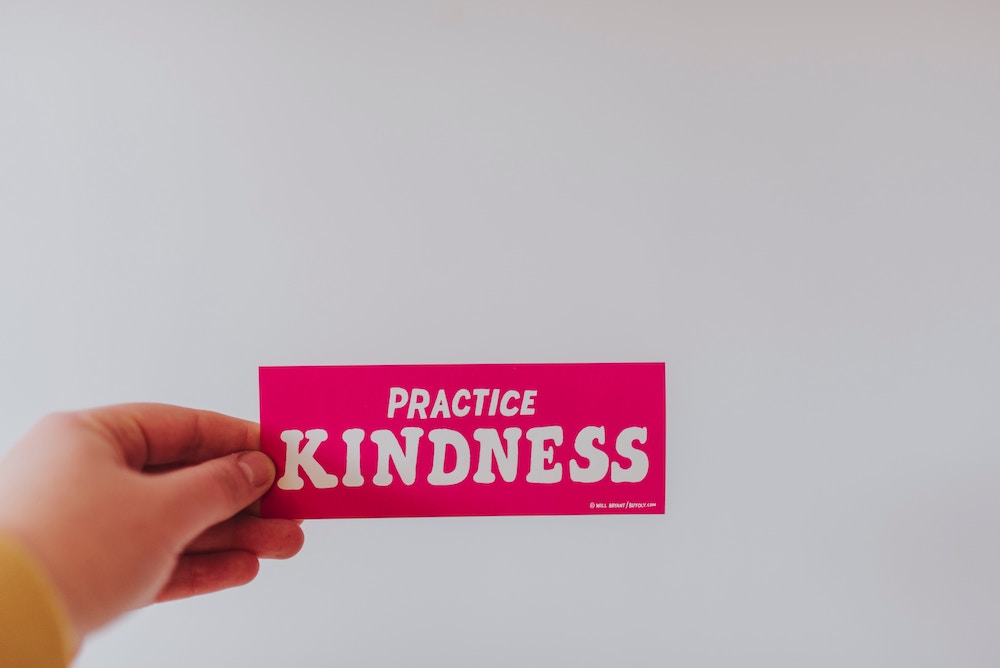In brief
In this Joining the Dots blog contribution, Ben Thurman reflects on the tensions between kindness and risk, relationships and professionalism, emotions and performance management, and the need to reshape organisational culture to foster a culture of kindness.

Ben Thurman
Policy and Development Officer
Ben works for the Carnegie UK Trust, where he leads their policy and practice on kindness.
You can follow Ben on Twitter @Ben_CarnegieUK

When we talk about the importance of valuing relationships, it can feel like the argument is already being won. The very existence and range of contributions to this blog series is testament to a growing movement of people who recognise not just that relationships matter, but that we are at risk of losing something very important in our communities and our organisations.
At the Carnegie UK Trust, we call this kindness. It is a word that seems to resonate across personal and professional boundaries, and which reflects the variety and complexity of human connection. It recognises that relationships, whether between individuals in communities or between service providers and citizens, have a powerful impact on wellbeing.
But it also recognises that meaningful connection is both reciprocal and unobligated: that communities and organisations are at their best when they enable the people within them to respond to each other in a way that is intuitive, relational and human; and that any move towards kindness has to be about creating the conditions, rather than forcing it into being.
Particularly in Scotland, where kindness sits at the heart of the National Performance Framework, there is a growing recognition that kindness has a role to play in serious discussions about a wide range of public policy challenges. However, while the idea of kindness is becoming more accepted, there is still much to do to understand what it might take to embed kindness in practice.
For the past 12 months, the Carnegie UK Trust has been coordinating a Kindness Innovation Network of people from across Scotland, and working in partnership with North Ayrshire Council, to explore what can be done to encourage kindness in communities, organisations and services. (We have brought together the learning and experience from hundreds of people across Scotland in our new report, The Practice of Kindness).
This work highlighted some of the (relatively) simple things that create the conditions for kindness. The theme of ‘kindness on a plate’ explored the unique power of food to bring people together, and create opportunities for connection. We thought about the nature of places and spaces, and how small interventions – in public spaces, but also in workplaces and service settings – can provide visual cues that give people ‘permission to be kind’. (Some of these initiatives are featured in our short film).
But we also learnt ever more about the limitations and the barriers that inhibit social connections and relationships.
Kindness is contingent on other factors – the way that we design our physical environment, the nature of our public and civic spaces, the policies and procedures that govern the behaviours of organisations. Increasingly, we have found that all of this ‘infrastructure’ gets in the way of kindness.
In one instance, we came across a group of people who had procured a donation of paint from a local business and set aside a day to redecorate their local community centre, before being told that they were not allowed to do so – on account of health and safety regulations that were designed to prevent harm, but enforced, at least in part, to mitigate the negative consequences of litigation. In the end, they had to wait a significant amount of time for the Council to do the painting; but the real loss was in the relationships that could have been formed, the sense of shared fulfilment, and the wider impact of creating a ‘welcoming space’ that the community feels part of.
This was just one example of a broad trend, where organisational cultures that have developed for very good reasons – to prevent harm, to ensure fairness, to deliver value for money – actually inhibit that which matters most: relationships and human connection.
Our work on kindness has identified three major barriers: attitudes towards risk and regulation, ideas about professionalism, and the influence of performance management.
These have shaped organisational cultures, which has a real impact on outcomes in communities, where the benefit of creating connections is too often outweighed by cost or the risk of something going wrong.
The same barriers also influence the way that (public) services are delivered. Despite the recognition that kindness and relationships are a core part of improving public policy outcomes, many frontline workers are constrained by policies that do not enable them to act in kindness. (And where kindness does happen, it is often in spite of existing policies and procedures, and requires professionals to ‘break the rules’ or ‘go the extra mile’, putting themselves at risk of censure).
In our work with North Ayrshire Council and other organisations, we have actively tried to tackle the precedence of these barriers, to develop organisational cultures that enable, rather than inhibit, kindness.
In this context, kindness is a radical concept, one which challenges established systems and structures, and demands rethinking the way that things are run and managed.
There is a whole raft of tensions: between kindness and risk, relationships and professionalism, emotions and performance management. Alongside this, we have perceived a sense of fear of ‘radical kindness’, which is perhaps unsurprising in a (public sector) context that does not always support risk-taking nor provide the time and space to invest in doing things differently.
We do not have all the answers. But we do know that any response to the complexities of kindness must be based on flexibility, trust and support to empower people and professionals to behave in a way that is authentic and, above all, human.
And we also know that creating the time and space for challenging conversations about the type of communities, organisations and society that we are striving towards is a vital part of the process towards change.
Over the next 18 months we will continue these conversations, with North Ayrshire Council and other organisations that are committed to thinking radically and putting kindness and relationships at the heart of what they do. We hope that you will join us on this journey.
